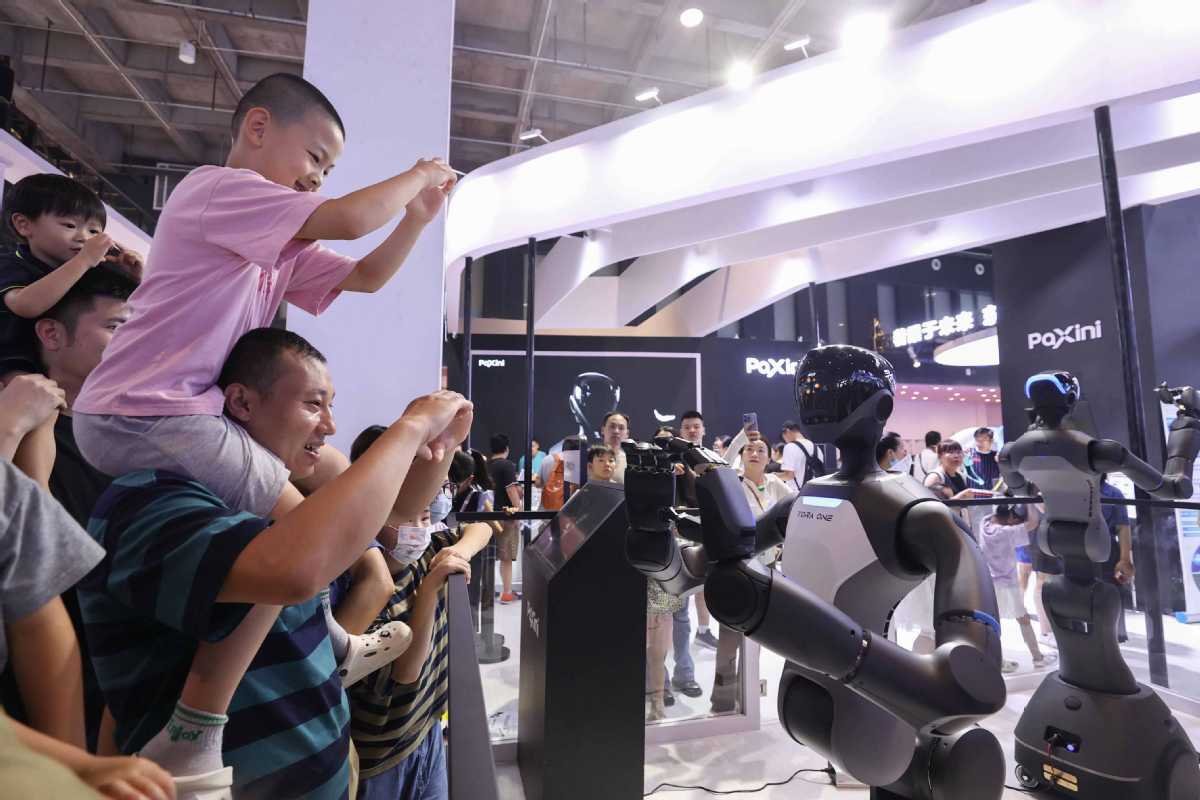China's humanoid robots advance automation
Chinese firms exploit 'right timing, right place and right people' for global edge
By CHENG YU | China Daily | Updated: 2024-09-09 09:02

Coincidentally, August also saw foreign automotive giants like Tesla and BMW introducing their first humanoid robot "employees" in the assembly lines. Tesla boss Elon Musk has even predicted that the ratio of humanoid robots to humans in the electric carmaker's workforce will eventually reach 1:1 at least.
According to market consultancy Coherent Market Insights, China's humanoid robot market is rapidly growing and is expected to clock $2.9 billion in sales revenue this year, and is projected to skyrocket to around $46.31 billion by 2031, at a staggering compound annual growth rate of 48.6 percent.
Jiao Jichao, vice-president and executive dean of UBTech's research department, said the company is confident that its humanoid robots will achieve widespread factory applications within three years. "The company aims to deliver humanoid robots in small quantities to industries, especially automobile factories, for handling and sorting tasks, by the end of this year."
From next year to 2027, such humanoid robots will be gradually used for assembly tasks and on-site operations. Besides the automotive industry, the company will deploy such robots in 3C, or computer, communication and consumer electronics fields, as well as the logistics sector.
"During this period, we aim to achieve larger-scale commercial mass production. Here, mass production not only involves a quantity increase, but also improvements in quality, cost control and operational efficiency," he said.
By 2033, the company's humanoid robots are expected to perform more precise assembly work, such as assembling interiors and wiring harnesses, as well as assembling smaller and more delicate products like smartphones and smartwatches in the 3C industries, he said.
His comments came as UBTech officially signed a cooperation agreement with Audi FAW and the Beijing Embodied Intelligence Robotics Innovation Center to jointly develop intelligent solutions for humanoid robots, at the World Robot Conference last month.
The cooperation will drive humanoid robots into automotive production lines for intelligent material handling, quality inspection and process material operations. This is expected to promote large-scale deployment of humanoid robots in car factories.
According to a guideline from the Ministry of Industry and Information Technology, China aims to establish a preliminary innovation system for humanoid robots by 2025. By 2027, the country will see a secure and reliable industry and supply chain system, and related products will be deeply integrated into the real economy.
To sharpen the edge of future industries including humanoid robotics, China will launch a series of scientific research projects, establish a number of incubators, support certain regions to explore and develop application scenarios, and cultivate more industrial high-fliers, said Jin Zhuanglong, minister of industry and information technology, at a news conference in July.
The National Development and Reform Commission also issued a document in June and encouraged the development of humanoid robots based on large-scale AI models to enrich consumption scenarios.
























